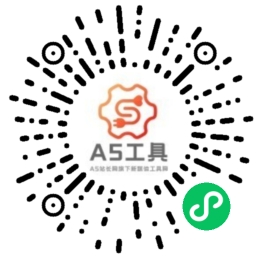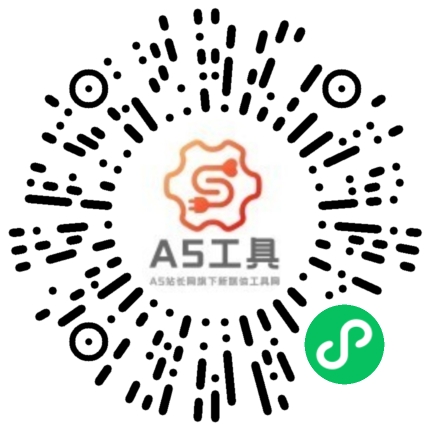AI赋能医疗:重塑健康未来,科技编织医疗新篇章
2024-12-17 10:40
**The Dawn of AI in Medicine: Revolutionizing Healthcare for a Brighter Future**
In an era where technology advances at a pace that seems almost sci-fi, one domain stands out for its transformative potential: medicine. Have you ever pondered how artificial intelligence (AI) is weaving its intricate threads into the fabric of healthcare? It's not just a question of if, but rather how profoundly AI is reshaping the medical landscape, offering solutions that were once the realm of futuristic dreams.
Consider the staggering statistic: by 2026, the global AI in healthcare market is projected to reach $36.1 billion, a testament to the unprecedented growth and investment in this field. This surge isn't without reason. AI's prowess lies in its ability to process vast amounts of data with unparalleled accuracy and speed, abilities that surpass even the most seasoned doctors.
Imagine a scenario where AI algorithms analyze millions of medical images, identifying anomalies that escape human eyes. Studies have shown that AI-powered diagnostic tools can detect diseases like cancer with a precision rivaling, and sometimes exceeding, that of human specialists. This not only speeds up diagnosis but also ensures earlier interventions, potentially saving countless lives.
Moreover, AI is revolutionizing personalized medicine. By crunching genetic data and patient histories, AI can tailor treatment plans that are unique to each individual. This precision medicine approach ensures that patients receive therapies that are most likely to work for them, minimizing trial-and-error prescriptions and enhancing treatment outcomes.
But the AI revolution in medicine doesn't stop at diagnostics and treatment. It's also transforming patient care through virtual health assistants and chatbots. These intelligent agents can provide round-the-clock support, answering queries, scheduling appointments, and even offering mental health counseling. In a world grappling with healthcare accessibility issues, AI presents a beacon of hope, ensuring that no patient feels neglected or left behind.
Yet, with great power comes great responsibility. Ethical concerns around data privacy, algorithmic biases, and the potential dehumanization of care are valid and must be addressed. As we march towards an AI-infused future in medicine, it's crucial to strike a balance between leveraging technology's benefits and preserving the essence of compassionate, human-centric healthcare.
In conclusion, AI in medicine is not just a passing trend; it's a paradigm shift that holds the promise of a healthier, more equitable world. As we stand on the cusp of this medical revolution, let us ask ourselves: How can we harness AI's potential responsibly, ensuring that it serves as a tool to augment, rather than replace, the art and science of healing? The answers to these questions will shape the future of healthcare, guiding us towards a brighter, more intelligent era of medicine.
In an era where technology advances at a pace that seems almost sci-fi, one domain stands out for its transformative potential: medicine. Have you ever pondered how artificial intelligence (AI) is weaving its intricate threads into the fabric of healthcare? It's not just a question of if, but rather how profoundly AI is reshaping the medical landscape, offering solutions that were once the realm of futuristic dreams.
Consider the staggering statistic: by 2026, the global AI in healthcare market is projected to reach $36.1 billion, a testament to the unprecedented growth and investment in this field. This surge isn't without reason. AI's prowess lies in its ability to process vast amounts of data with unparalleled accuracy and speed, abilities that surpass even the most seasoned doctors.
Imagine a scenario where AI algorithms analyze millions of medical images, identifying anomalies that escape human eyes. Studies have shown that AI-powered diagnostic tools can detect diseases like cancer with a precision rivaling, and sometimes exceeding, that of human specialists. This not only speeds up diagnosis but also ensures earlier interventions, potentially saving countless lives.
Moreover, AI is revolutionizing personalized medicine. By crunching genetic data and patient histories, AI can tailor treatment plans that are unique to each individual. This precision medicine approach ensures that patients receive therapies that are most likely to work for them, minimizing trial-and-error prescriptions and enhancing treatment outcomes.
But the AI revolution in medicine doesn't stop at diagnostics and treatment. It's also transforming patient care through virtual health assistants and chatbots. These intelligent agents can provide round-the-clock support, answering queries, scheduling appointments, and even offering mental health counseling. In a world grappling with healthcare accessibility issues, AI presents a beacon of hope, ensuring that no patient feels neglected or left behind.
Yet, with great power comes great responsibility. Ethical concerns around data privacy, algorithmic biases, and the potential dehumanization of care are valid and must be addressed. As we march towards an AI-infused future in medicine, it's crucial to strike a balance between leveraging technology's benefits and preserving the essence of compassionate, human-centric healthcare.
In conclusion, AI in medicine is not just a passing trend; it's a paradigm shift that holds the promise of a healthier, more equitable world. As we stand on the cusp of this medical revolution, let us ask ourselves: How can we harness AI's potential responsibly, ensuring that it serves as a tool to augment, rather than replace, the art and science of healing? The answers to these questions will shape the future of healthcare, guiding us towards a brighter, more intelligent era of medicine.
这篇关于《AI赋能医疗:重塑健康未来,科技编织医疗新篇章》的文章就介绍到这了,更多新媒体运营相关内容请浏览A5工具以前的文章或继续浏览下面的相关文章,望大家以后多多支持A5工具 - 全媒体工具网!





